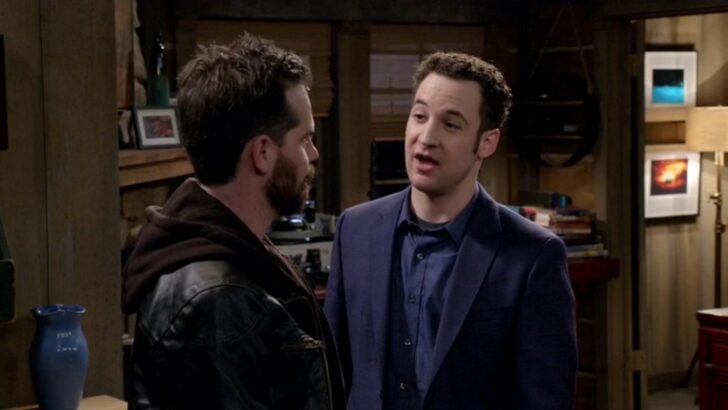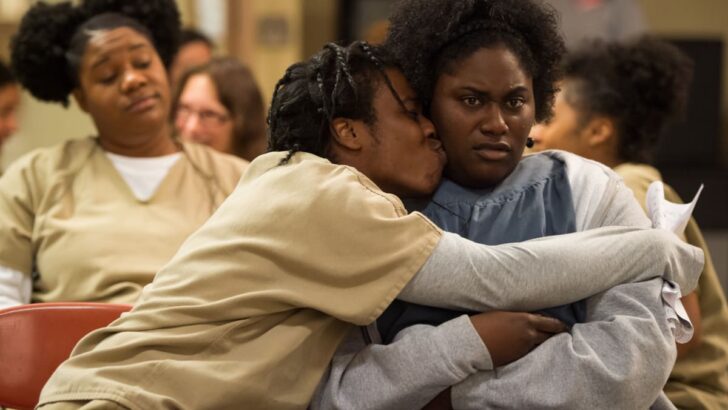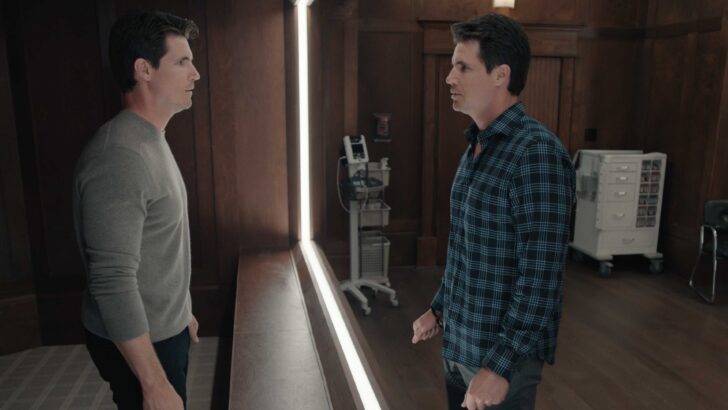Do you know what’s difficult? Navigating a series like The Summer I Turned Pretty when you’re not invested exclusively in the love triangle.
It could be due to that sentiment that watching the two-part season three premiere was difficult at times.
One of the most irritating storytelling peeves is when a series introduces an inconsistency or contrivance solely to advance the plot.
As I’ve established, I’m more of a Team Therapy girl when it comes to Belly and the Fisher Boys.
I see three people who have experienced serious emotional upheaval, grief, and family dysfunction.
What they need isn’t to pick a partner but to do some serious inner work. Instead of giving these characters space to grow, the series forces them through plot mechanics designed only to elevate one relationship at the expense of character coherence.
Even knowing that, it’s evident the series intends for there to be a romantic endgame — and they’ve never hidden that it will be Conrad and Belly. Fine. I’m not invested enough to feel strongly about that. But my biggest criticisms revolve around actually earning it.
A good triangle has genuine balance among its sides. When you watch or read about it, you genuinely spend time not knowing which will actually prevail. Sure, you can hope and rally for the ship that appeals to you most. But there’s always the possibility it won’t work out your way.

While it seemed like TSITP had some interest in playing the song and dance to convince us that it didn’t have Belly’s future set in stone, it quickly devolved.
The longer we spent time with the characters and saw the pushing of one agenda over another, the more the “love triangle” lost its luster, especially for those of us who were indifferent to it in the first place.
What’s even more frustrating is when a series starts laying the groundwork for its ultimate goal, but doesn’t go through the proper channels to earn its desired outcome.
It’s jarring when it doesn’t unfold organically, leaning on a host of contrivances and contradictions to push the plot forward.
As happy as I was that the emotionally unavailable Conrad has apparently been seeing a therapist, it was also frustrating that we spent so little time getting to experience what that was like for him.

We spent seasons watching him struggle with emotional unavailability, depression, and toxic communication, but we never got to see the work of his improvement. Instead, the show asks us to believe in his character evolution because it’s narratively convenient.
Yes, it’s still early days, but I have a strong suspicion this is the tactic they’ll take moving forward. For those of us more intrigued by character journeys than romance, it’ll be unsatisfying.
The narrative has opted to set him up for the eventual Belly/Conrad endgame (despite Belly also desperately needing her own growth) rather than letting individual character arcs take center stage.
And then, there’s whatever the hell TSITP is choosing to do with Jeremiah. The series didn’t know how to play it. The murkiness of whether they had broken up when he slept with someone else was off-putting because it left too much to interpretation.

It’s also difficult to accept that the series treats the gray area of his situation far more harshly than a clearly defined case of infidelity with Steven and Taylor.
The show doesn’t want us to view either of them — or even Conrad or Belly herself — as bad people, despite all of them having hurt others in their romantic entanglements.
So why are they suddenly asking viewers to feel intensely angry at Jeremiah? Is it a matter of upholding the love triangle ahead of all else and exploiting the strong feelings regarding that?
It’s equally off-putting that the series paints Jeremiah’s Cabo incident in murky tones, particularly given that the story involves alcohol and uncertainty.
More than anything, it feels likeTSITP used Jeremiah’s “infidelity” to derail a relationship that didn’t need it. There was already more than enough to mine from Belly and Jeremiah’s codependency — it wasn’t healthy, and it’s something we were already seeing.

Why not lean into that natural source of tension, rather than invent a cheating scandal that felt unnecessary and vague?
Belly loses her entire identity to whichever boy she’s with. Meanwhile, Jeremiah is a masochist who spends his entire relationship trying to ensure his girlfriend wants him over his brother. There’s more than enough to work with there.
Instead of exploring how Belly couldn’t accept Jeremiah breaking up with her at face value — because she’s so used to trying to decipher what Conrad is and isn’t saying — the narrative twists itself into a pretzel with the Cabo story to create tension.
That brings me to my other frustration: the imbalance. TSITP doesn’t trust its characters to be complicated. It only trusts them to fit its predetermined conclusion.
Belly, in particular, is rarely held accountable for the emotional whiplash she delivers.

Her identity is constantly absorbed by whichever Fisher brother she’s entangled with. She doesn’t just fall in love, no, she disappears into it. She unwittingly uses both of them as emotional security blankets, but the series doesn’t interrogate that.
Nor does it interrogate the unhealthy romantic mythology it builds around Conrad.
He’s not a bad guy. But it’s exhausting and problematic that there’s always justification for his every word and action rather than a reckoning. He becomes the embodiment of the damaging childhood trope: “If a boy treats you terribly, it means he likes you.” It’s romanticized emotional neglect.
To add insult to injury, the series is intent on portraying Jeremiah as an antagonist in the larger narrative of Belly and Conrad’s story.

And that’s irksome, not because he needs or deserves to be with Belly, or because he’s better than his brother — I genuinely want better for both Fisher boys.
But it already feels like this season intends to erase everything in The Summer I Turned Pretty Season 2 to push a particular narrative. Why is Jeremiah behaving like a typical college frat boy, suddenly demonized? It’s not ideal behavior, but it’s also not uncommon for a college student.
And why is the show suddenly painting him as emotionally immature and irresponsible? We saw him take care of his cancer-stricken mother while his brother struggled and his father bailed.
That’s not immaturity — that’s a teenager who had to grow up too fast. And even if he’s trying to enjoy college now, isn’t that understandable?
Why can’t we attribute Jeremiah’s behavior to grief, family pressure, and the burden of unspoken expectations? Why can’t the series grant him the limited complexity it grants the others?

Thus far, the series has no interest in exploring Jeremiah outside of the love triangle or his brotherhood with Conrad. Although it handles the other two almost as poorly in different ways.
Instead, it’s content to vilify him to serve a narrative endpoint—and that’s a waste.
After all, I don’t care where the series ultimately leads me. I just want the journey that gets me there to make narrative sense and unfold naturally.
Watch The Summer I Turned Pretty Online
It’s like yelling into the void sometimes. If you’re out there, and you want to share your TSITP thoughts with us, holler back!
Comments, shares, and good vibes all keep this little ship afloat. Thanks for reading.
11 Iconic Bromances That Withstood The Test of Time
IIt’s National Bromance Day! Check out the iconic TV bromances we picked that have withstood the test of time.
Countdown Season 1 Episode 6 Admits the Show Is Stalling
Countdown Season 1, Episode 5 does nothing to advance the team’s objective as they continue to do more of the same. Our deep dive!
12 Years Later, Orange Is the New Black Is a Time Capsule of Streaming’s Early Days
Orange is the New Black is a defining drama from the early days of streaming, a time when shows were fewer and quality was higher.
Prime Video’s Butterfly: Cast, First Look & Everything We Know
Prime Video’s new spy series, Butterfly, premieres in August. We have the scoop, including the official trailer.
Ctrl+Alt+Goodbye: Upload Logs Off With Shortened Final Season
Upload is logging off for good this summer. But not how we may want!
TV Fanatic is searching for passionate contributors to share their voices across various article types. Think you have what it takes to be a TV Fanatic? Click here for more information and next steps.
The post The Summer I Turned Frustrated: It’s Not Jeremiah, It’s the Writing appeared first on TV Fanatic.






